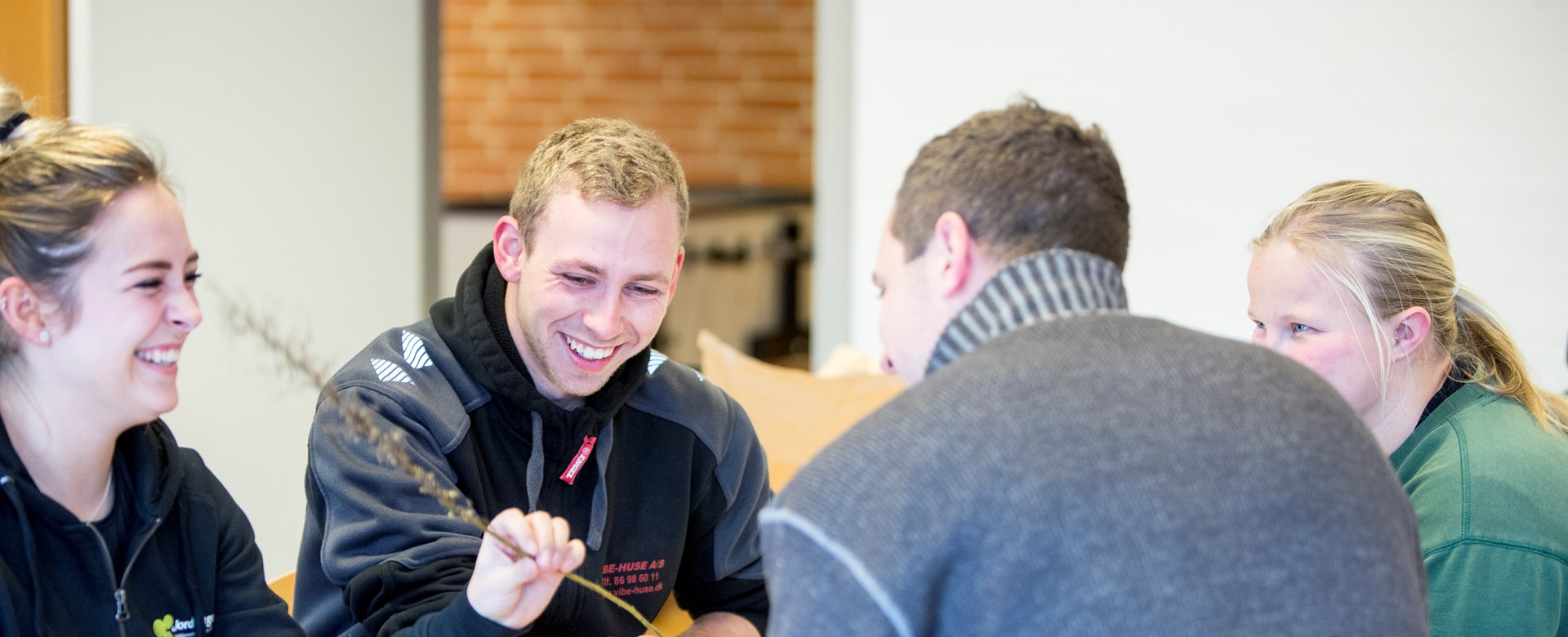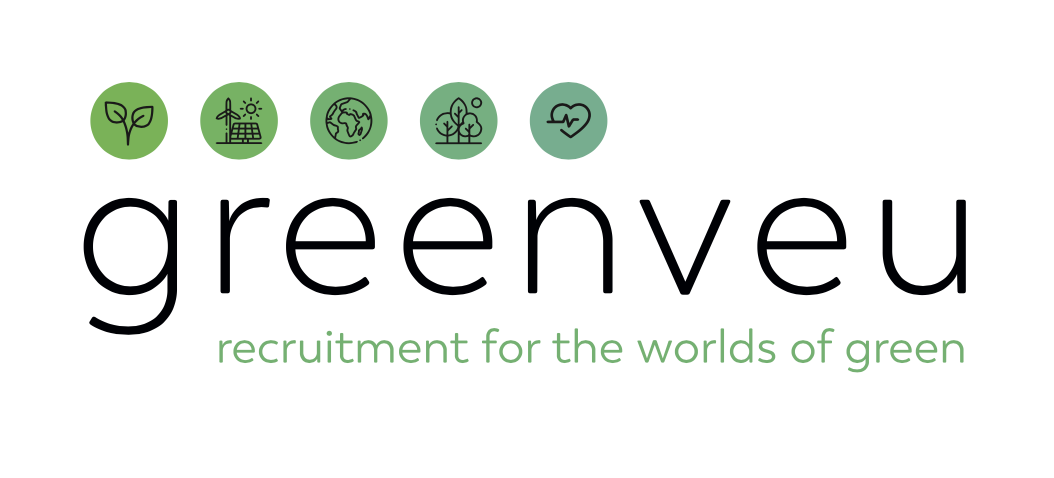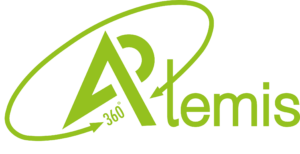

Green Academy offers a broad range of educations within all green areas: Landscaping, Gardening, Floristry, Foresting, Farming, Farm Machinery Operating, Animal Care and Nursery. Both for Danish and international students, emphasizing hands-on experience.
At Green Academy, we are deeply committed to international collaboration through our active involvement in Erasmus+, Nordplus and Interreg projects. These partnerships offer invaluable opportunities for our students and staff to gain international experience, enhance their professional skills, and improve their competencies. Each year, we engage in multiple projects to promote cooperation and drive innovation with our national and international partners.
In Danish the school is known as Jordbrugets UddannelsesCenter Århus – or simply JU Århus.
Awards & Accreditations

In 2018, Green Academy was awarded the prestigious Erasmus+ VET Charter for our excellent management of student mobility projects. Additionally, we hold an Erasmus+ Accreditation for 2021-2027. Last year, we received a Certificate of Excellence from Erasmus+ for outstanding final reports, highlighting our continued success.
Projects we are involved in:
Partners
At Green Academy, collaboration is crucial for the success of our projects and the exchange of students and teachers. We actively partner with various stakeholders to achieve these goals. Working with diverse partners allows us to enhance our educational offerings and provide valuable opportunities for our community.
Green Academy partners:

Facilities
Nursery
At our school's own nursery, we grow larger plants, shrubs, and trees for both indoor and outdoor use. We handle production, sales, and product presentation, and we also grow various vegetables and hedge plants outdoors.
The nursery sells its products to staff and students a couple of times a week, and it gets especially busy around our open house event in May/June.
Greenhouses
In our school's greenhouses, we cultivate plants for both internal and external sales. We work with climate control technology and biological pest control, producing a variety of potted plants, herbs, flower bulbs, cut flowers, and more. Each year at Christmas, we grow poinsettias for the residents of the local nursing home and for all school staff. The greenhouse is especially busy around our annual Open House event in May/June.
Our greenhouses are unique in that we grow many different types of plants and crops. Large commercial greenhouses often focus on just one or two products, but we like to experiment with different growing methods and materials. Sometimes, the students also conduct special experiments, such as working with permaculture systems.
Indoor and Outdoor Practice Areas
We have three indoor halls with sand-based practice areas where landscaping students can practice laying paving and building garden installations. The hall for beginners is called "The Sandbox."
The landscaping students also have access to three large outdoor practice areas and a themed garden area that gets redesigned from time to time. Additionally, the school's other green spaces, including "The Park," are maintained by students as part of their training.
Construction Machines and Tools
Our landscaping students have access to a fleet of construction machines, as well as smaller gardening machines and tools that they use in their daily work.
The school has strong partnerships with several companies, giving students and course participants access to the latest equipment and training on how to use it.
Agricultural Machinery
The school has its own fleet of agricultural machinery, which can be found at the Bredballegård department. Bredballegård is our school’s farm, where we use these machines for harvesting, sowing, and preparing the fields. The machines are also used in lessons, such as when the agricultural machinery operators learn to dismantle an engine or drive using GPS.
Thanks to our collaboration with various companies, students and participants also get hands-on experience with some of the most advanced equipment on the market.
Workshops
The school has several workshops that are used in both teaching and practical work. These include a welding workshop, a filing workshop, a workshop for large agricultural machinery, and one for construction equipment. All the workshops are equipped with the tools and maintenance equipment needed for school projects.
Farm and Fields
At Bredballegård, our school farm, we have small-scale livestock and crop production. We have 55 hectares of land where we grow barley, wheat, maize, and clover. Our farm also includes around 30 Jersey dairy cows that provide milk to Arla and graze in the fields during the summer. We have a small-scale pig production with about 25 pigs at a time, which are delivered to the Danish Crown slaughterhouse. Additionally, we have a horse stable with four horses and a riding arena.
Tropical House and Animal Keeper Facilities
The tropical house is part of the animal keeper practice area. Here, we care for animals like turtles, tarantulas, various snakes, bearded dragons, and marmoset monkeys. As part of the lessons, students feed the animals, clean their enclosures, and maintain their habitats. Other parts of the animal keeper area include a chicken coop with an aviary, livestock stables, horse facilities, and an area with mice and rats, where students focus on reproduction and gender identification.
Flower Workshop
The school’s florists have a workshop equipped with all the necessary tools to create the various types of floral arrangements they are taught. Here, there are various cutting and trimming tools, vases, wire, floral foam, and much more. Each week, we receive fresh flowers that match the week’s floral arrangement theme. We also harvest extensively from the school’s own park, which is full of different plants and flowers depending on the season.
Canteen
The canteen is a gathering place for students, course participants, and staff during lunchtime. It’s also where breakfast and dinner are served to students and participants living in the school dormitory. Each week, the kitchen prepares a new menu with hot and cold dishes to encourage healthy, varied eating habits for canteen guests. We have canteens at both Beder and Bredballegård.

Shop
The school has its own shop located at the Beder department. Here, you can buy work clothes, books, drawing materials, sandwiches, drinks, pruning shears, coffee, fruit, and much more. Ulla is the person you'll meet in the shop, and she’s always ready to help if you need anything. You can pay with cash, card, or MobilePay in the school shop, which is open during all breaks except for Friday afternoon.

Library
The school has its own library. The library is located at the Beder department and is a specialized library with books and journals covering topics across the entire green sector. Some of the books are so unique that they can't be found in any other library in Denmark, and you'll discover plenty of useful knowledge on the shelves, for example, when working on assignments.
Mette is the school’s librarian, and she’s always ready to help you if you're looking for something specific or just "something about" a topic. In the library, you can also get assistance with searching for materials in various databases, or you can take a short break and read the latest issue of your favorite trade magazine in the library’s cozy sofa.
Find and order books, journals, films, and academic articles:









































